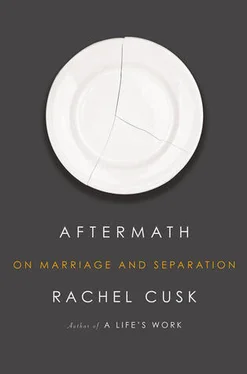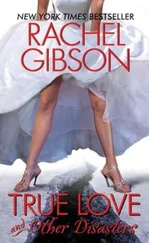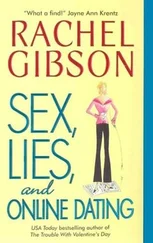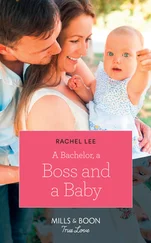Rachel Cusk - Aftermath - On Marriage and Separation
Здесь есть возможность читать онлайн «Rachel Cusk - Aftermath - On Marriage and Separation» весь текст электронной книги совершенно бесплатно (целиком полную версию без сокращений). В некоторых случаях можно слушать аудио, скачать через торрент в формате fb2 и присутствует краткое содержание. Год выпуска: 2012, Издательство: Farrar, Straus and Giroux, Жанр: Публицистика, Биографии и Мемуары, на английском языке. Описание произведения, (предисловие) а так же отзывы посетителей доступны на портале библиотеки ЛибКат.
- Название:Aftermath: On Marriage and Separation
- Автор:
- Издательство:Farrar, Straus and Giroux
- Жанр:
- Год:2012
- ISBN:нет данных
- Рейтинг книги:3 / 5. Голосов: 1
-
Избранное:Добавить в избранное
- Отзывы:
-
Ваша оценка:
- 60
- 1
- 2
- 3
- 4
- 5
Aftermath: On Marriage and Separation: краткое содержание, описание и аннотация
Предлагаем к чтению аннотацию, описание, краткое содержание или предисловие (зависит от того, что написал сам автор книги «Aftermath: On Marriage and Separation»). Если вы не нашли необходимую информацию о книге — напишите в комментариях, мы постараемся отыскать её.
Aftermath: On Marriage and Separation — читать онлайн бесплатно полную книгу (весь текст) целиком
Ниже представлен текст книги, разбитый по страницам. Система сохранения места последней прочитанной страницы, позволяет с удобством читать онлайн бесплатно книгу «Aftermath: On Marriage and Separation», без необходимости каждый раз заново искать на чём Вы остановились. Поставьте закладку, и сможете в любой момент перейти на страницу, на которой закончили чтение.
Интервал:
Закладка:
Winter comes: the days are brief and pale, the sea retracted as though into unconsciousness. The coldly silvered water turns quietly on the shingle. There are long nights of stars and frost, and in the morning frozen puddles lie like little smashed mirrors in the road. We sleep many hours, like people recovering from an operation. Pain is so vivid, yet the stupor of recovery is such that pain’s departure often goes unnoticed. You simply realise, one day, that it has gone, leaving a curious blank in the memory, a feeling of transitive mystery, as though the person who suffered is not — not quite — the same as the person who now walks around well. Another compartment has been created, this one for keeping odds and ends in, stray parts of experience, questions for which the answers were never found.
We rearrange the furniture to cover up the gaps. We economise, take in a lodger, get a fishtank. The fish twirl and pirouette eternally amid the fronds, regardless of what day it is. The children go to their father’s and come back again. They no longer cry: they complain heartily about the inconvenience of the new arrangements. They have colour in their faces. A friend comes to stay and remarks on the sound of laughter in the house, like birdsong after the silence of winter. But it is winter still: we go to a Christmas carol service and I watch the other families. I watch mother and father and children. And I see it so clearly, as though I were looking in at them through a brightly lit window from the darkness outside; see the story in which they play their roles, their parts, with the whole world as a backdrop. We’re not part of that story any more, my children and I. We belong more to the world, in all its risky disorder, its fragmentation, its freedom. The world is constantly evolving, while the family endeavours to stay the same. Updated, refurbished, modernised, but essentially the same. A house in the landscape, both shelter and prison.
We sing the carols, a band of three. I have sung these songs since my earliest recollection, sung them year after year: first as a tradition-loving child in the six-strong conventional family pew; later as a young woman who most ardently called herself a feminist; later still as a wife and mother in whose life these unreconcilable principles — the traditional and the radical, the story and the truth — had out of their hostility hatched a kind of cancer. Looking at the other families I feel our stigma, our loss of prestige: we are like a gypsy caravan parked up among the houses, itinerant, temporary. I see that we have lost a degree of protection, of certainty. I see that I have exchanged one kind of prestige for another, one set of values for another, one scale for another. I see too that we are more open, more capable of receiving than we were; that should the world prove to be a generous and wondrous place, we will perceive its wonders.
I begin to notice, looking in through those imaginary brightly lit windows, that the people inside are looking out. I see the women, these wives and mothers, looking out. They seem happy enough, contented enough, capable enough: they are well dressed, attractive, standing with their men and their children. Yet they look around, their mouths moving. It is as though they are missing something or wondering about something. I remember it so well, what it was to be one of them. Sometimes one of these glances will pass over me and our eyes will briefly meet. And I realise she can’t see me, this woman whose eyes have locked with mine. It isn’t that she doesn’t want to, or is trying not to. It’s just that inside it’s so bright and outside it’s so dark, and so she can’t see out, can’t see anything at all.
EXTRACTION
The day my husband moved his possessions out of our house I had toothache. It was raining, and all morning the door to the street stood open. The wet air gusted in and the dim hall lay like an opened tomb in the grey daylight. I stood at the bottom of the stairs, my hands over my mouth, like a mime artist pantomiming dismay.
The dentist recommended extraction: the X-ray photograph showed that the tooth was beyond repair. Theoretically, he said, it ought to be possible, but the idiosyncracies of the case were what counted here. The crooked shape of the root made it inaccessible to the long, fine instruments that would kill the nerves. They, the instruments, could not turn corners. And the root, as the X-ray showed, had grown at a right angle to itself halfway down.
Why had it assumed that shape? It was difficult to know, the dentist said. It may have been bent by the pressure of other forces, but there appeared to be an aspect of fate to it too, the response of its own nature to the available conditions. To an extent it had simply chosen to go in that direction. One could not entirely blame the positioning of the other teeth, the spatial properties of the jaw, the condition of the gums; no, the tooth itself would have to answer for its doomed character. It had been in some ineluctable sense wayward, and now it had put itself beyond reach. A straighter root, however diseased, could have been redeemed. Superficially the condition of this one was not so bad, but form is destiny; form, not content, that which is shaped and therefore shapes its own fate.
While the X-ray was taken the dentist and the nurses stepped back, as one, reflexively turning away and crossing their arms over their chests. Their soft-shod feet were noiseless as they withdrew in this synchronised gesture of self-protection: in their white overalls they stood like acolytes at the ceremony of blood. The dentist, a tall and broad-shouldered Greek, wore beneath his overall a richly patterned floor-length robe. The wan nurses were silent as they moved dimly among the white and chrome cabinets at the back of the room, forever recessed, like figures in the background of a painting. Was the pain more or less constant, he asked, or were there still phases of normality in which one could do and think of other things? Had we reached the point of crisis where our only experience was the experience of suffering, where our only need, our only desire was the desire to end it? It is terrible to desire the end of something, the absence of something: desire should belong to life, to presence and not absence. One should be careful not to live in this inverted state too long; nor, he said, should one pull out a tooth unless it is absolutely necessary. Had we, then, reached the moment at which extraction had become impossible to defer any longer?
It could be said, yes, that the pain no longer had any intermissions. It used to be possible to escape from it at night, in sleep, but lately it had found out that hiding place too and had broken it down, like an invader breaking down the door of an ill-defended fortress. The ease with which the door came down was a crisis in itself: how fragile, how insubstantial normality was proved to be once pain came to disturb it! Pain is strong and huge and relentless, and ‘normality’ — that was the word he used, wasn’t it? — normality is the fine balance life achieves in the absence of disruption, is the blank register of events and their aftermath, slowly re-stitching and repairing itself, as the surface of a pool gradually becalms itself after a pebble has been thrown in. Normality is capable of resisting nothing and can outlive almost anything. Pain, on the other hand, can destroy whatever it has a mind to. Pain is the bomb that falls, and normality the grass that grows, at length, over the crater. To resist pain one must be as strong as pain, must make of oneself a kind of human bomb-shelter.
The extraction will leave a sizable declivity — a crater of sorts — behind it. It is a molar, centrally placed on the lower right jaw: a large tooth of great practical and personal significance whose disappearance nonetheless will be surprisingly unnoticeable from outside. It will not, of course, grow back. The intimate world of the mouth will suffer irreversible loss. In time, if sufficient resources and effort of will can be found, a simulacrum may be fitted; until then, the other teeth will have to do the work of compensating for the absence. Different modes of eating and chewing might evolve to remove strain from the area; curiously enough, the mirroring molar on the left-hand side is also missing. This is not, then, the first such experience of loss. A major tooth has already decayed and been extracted from this mouth, a history which obviously makes things harder. The current extraction is a darker business because of it. And the question of blame, always so delicate where it is in the nature of things to break down, is altered by this new piece of evidence. It’s beginning to look like carelessness, to paraphrase Oscar Wilde. For a tooth, properly looked after, ought to be able to last a lifetime.
Читать дальшеИнтервал:
Закладка:
Похожие книги на «Aftermath: On Marriage and Separation»
Представляем Вашему вниманию похожие книги на «Aftermath: On Marriage and Separation» списком для выбора. Мы отобрали схожую по названию и смыслу литературу в надежде предоставить читателям больше вариантов отыскать новые, интересные, ещё непрочитанные произведения.
Обсуждение, отзывы о книге «Aftermath: On Marriage and Separation» и просто собственные мнения читателей. Оставьте ваши комментарии, напишите, что Вы думаете о произведении, его смысле или главных героях. Укажите что конкретно понравилось, а что нет, и почему Вы так считаете.












